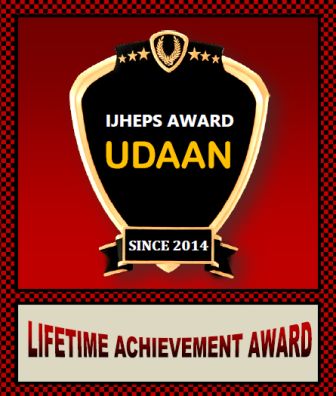
e-ISSN 2320-2955, p-ISSN 2249-2569, ISBN 978-81-909047-9-7
INTERNATIONAL RESEARCH JOURNAL OF HUMANITIES,
ENGINEERING & PHARMACEUTICAL SCIENCES
(An International Registered Research Journal) - Now IJHEPS Recommended By International Committee of Medical Journal Editors, USA
- Now IJHEPS Recommended By International Committee of Medical Journal Editors, USA
| PHARMACY | |
|---|---|
| Title | THERMOREVERSIBLE NASAL GEL OF CARVEDILOL USING ALOE MPS AND SODIUM ALGINATE |
| Authors | Sujatha Prathi & Yajaman Sudhakar |
| Page No | 31-42 |
| Code | Int./JUNE14/PH652 |
| Affiliation | Government Polytechnic for Women, Kadapa, Andhra Pradesh, INDIA |
| Abstract | The objective of the present study was to develop mucoadhesive, thermoreversible nasal gel of Carvedilol using Aloe MPS, SA and Pluronic F127 (PF127). The efficiency of natural polymers was compared with GRAS polymers HPMCK4M and Sodium CMC. Mucoadhesive material from Aloe vera L leaves was isolated by the established procedures. pH, swollen volume, swelling capacity, moisture sorption capacity and loss on drying of isolated material was studied. Tensile strength of 1% w/v solution on excised goat nasal mucosa was determined using modified surface tensiometer. Drug-polymer compatibility was studied by FTIR spectroscopy. Formulations were modulated to ensure gelation at physiological temperature after instillation. Gelation temperature was determined by both visual inspection and rheological measurements. The tensile strength of the optimized formulations was determined using an ultra test equipped with a 5-kg load cell. The ex-vivo drug permeation studies were studied across goat nasal mucosa in a thermostatically controlled Franz diffusion cell. In vivo studies were conducted on New Zealand albinio rabbits and the estimation of carvedilol in plasma was done by reverse phase HPLC method with UV detection using Glimepride as internal standard. The mobile phase consists of 0.02M potassium dihydrogen phosphate buffer: methanol: ACN (40:20:30 v/v) adjusted to pH 6.0 using KOH and the chromatography was performed at room temperature using a flow rate of 1.0 ml/min isocratically. In conclusion, natural, biodegradable, mucoadhesive, thermoreversible nasal gel of Carvedilol using Aloe MPS, SA and Pluronic F127 exhibited superior in situ gelling and mucoadhesive properties with improved bioavailability. It will be a promising delivery system with quicker onset of action and better patient compliance for the treatment of mild to moderate congestive heart failure and hypertension. |
| Paper | Download |









